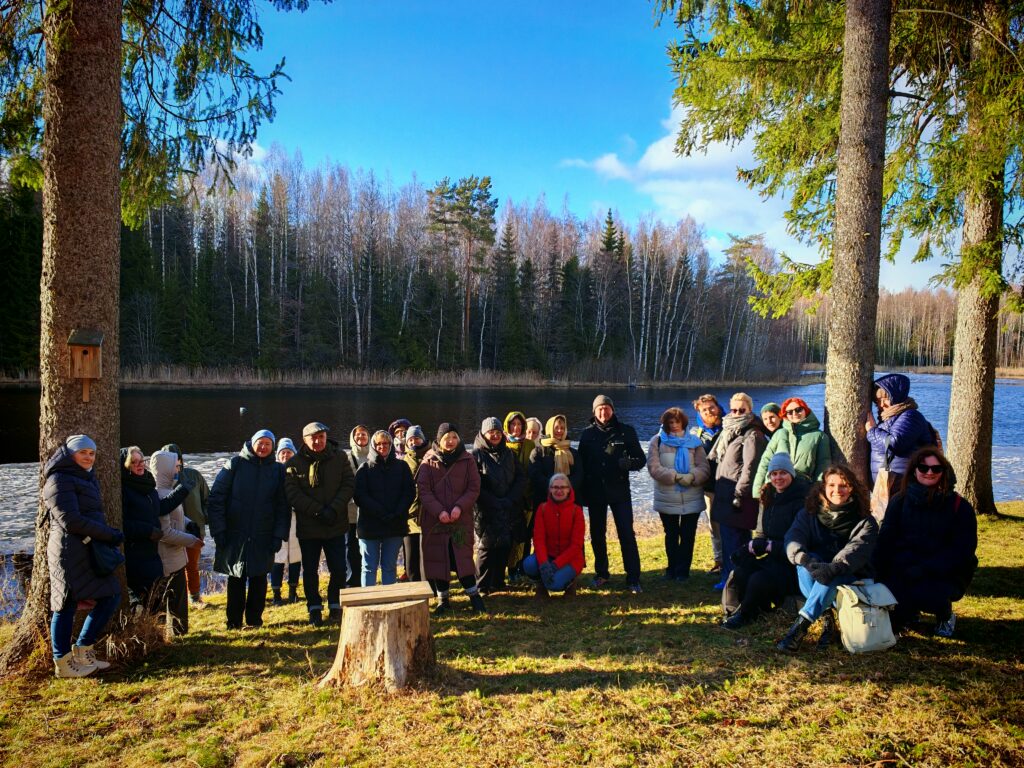Secondary teachers from Lithuania exploring what is phenomenon-based learning
In early April we welcomed a big group of secondary school teachers from Lithuania to get to know Finnish Education practices and also dive deeper in the field of phenomenon-based learning and multi-disciplinary education from many different perspectives. We examined the topic through the Finnish curriculum, workshops, and school visits. Our guests noticed that there are individual differences between schools, but the quality remains the same.
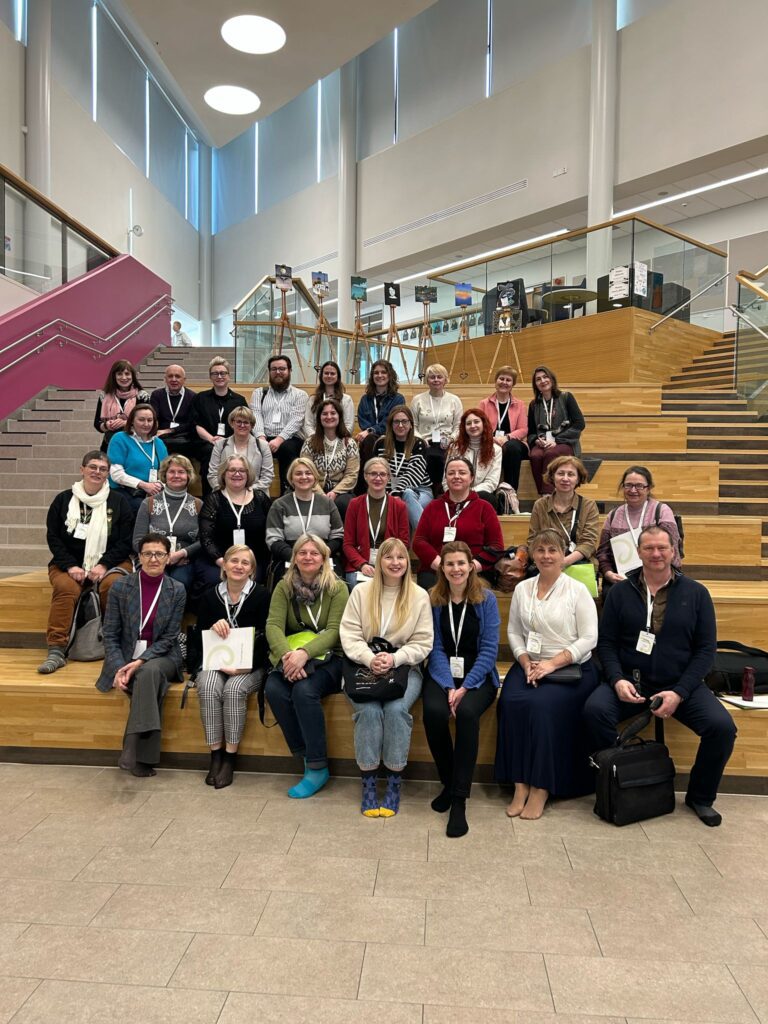
Mobile phone ban, child-centered learning and no school inspections
During the first day we visited highly modern and well-equipped Vuores Comprehensive School in Tampere. Our visitors were impressed by the calm and focused atmosphere of a school with 1,000 pupils. This study tour highlighted phenomenon-based learning and multidisciplinary education, and we discussed how subjects like home economics and handicrafts draw on skills from various disciplines, such as mathematics and chemistry, to create an optimal environment for engaging and effective learning.
One particularly interesting observation was that due to the child-centric nature of the education system, pupils actively participate in meetings between parents and teachers and carry out self-evaluations throughout the school year.
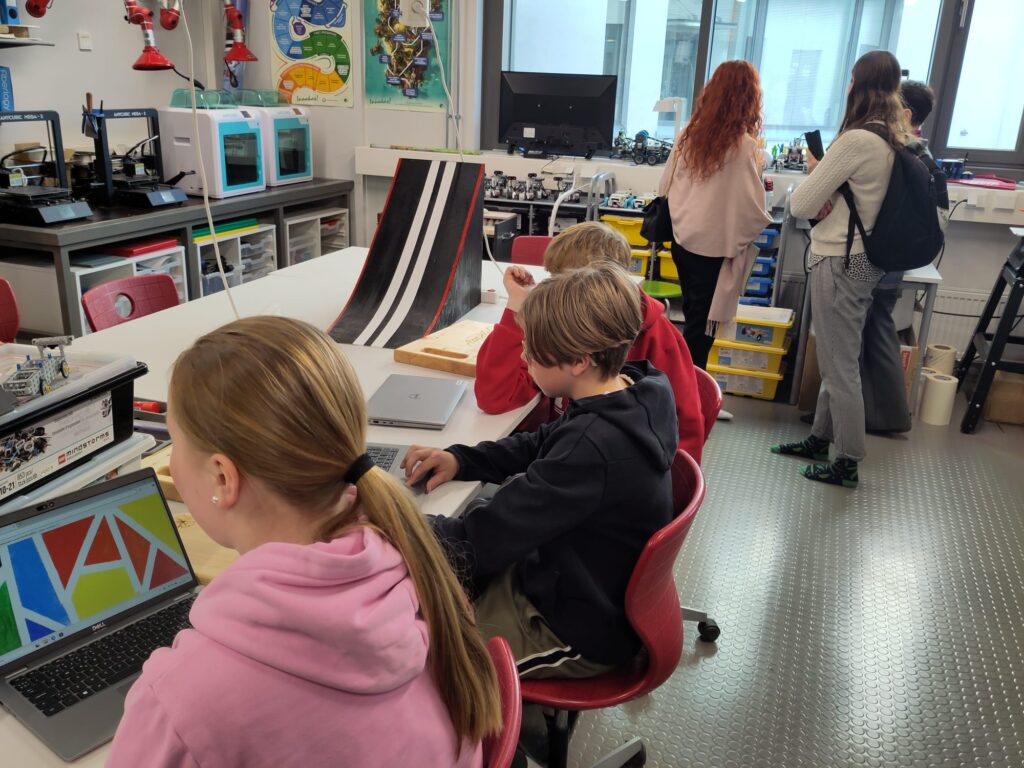
There is a mobile device policy in place at Vuores school we visited – phones are not allowed at all in elementary school, in lower secondary school only during breaks and during class if instructed by the teacher (the new bill of banning smart phones at schools was discussed, too).
In Finnish schools teaching mother tongue is highly emphasized. It builds a solid foundation to learn other languages and express your thoughts. Also, there are no school inspections at all and teachers are not evaluated the same way as in many countries.
Life-skills that matter
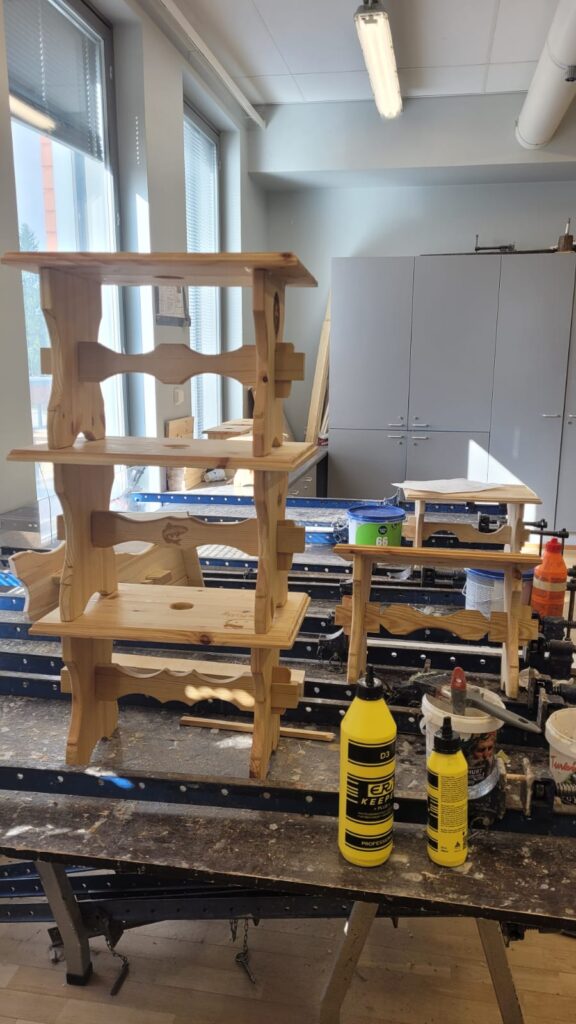
On the second day our group headed to Pikkola school which is a lower secondary school, where students are 13-16 years old. The principal explained how their students are learning how to write a CV and job applications, how to count their salary and read the pay check, what are the costs of daily living and what kind of ethical choices it includes and much more. Some of the materials of the presentation were displayed in Lithuanian language! Thank you very much for the extra effort made.
The curriculum includes many practical and artistic subjects. In craft classes, practical items are made, for example, out of wood. In home economics classes, students learn to cook and clean, but they also get to eat the baked goods they’ve made themselves. That is typically the best part of the lesson and students really appreciate the food as they have cooked themselves and they need to clean up afterwards, do the dishes and so on. Food items in home economics class raised a lot of admiration and interest.
Climate Warriors for a sustainable future
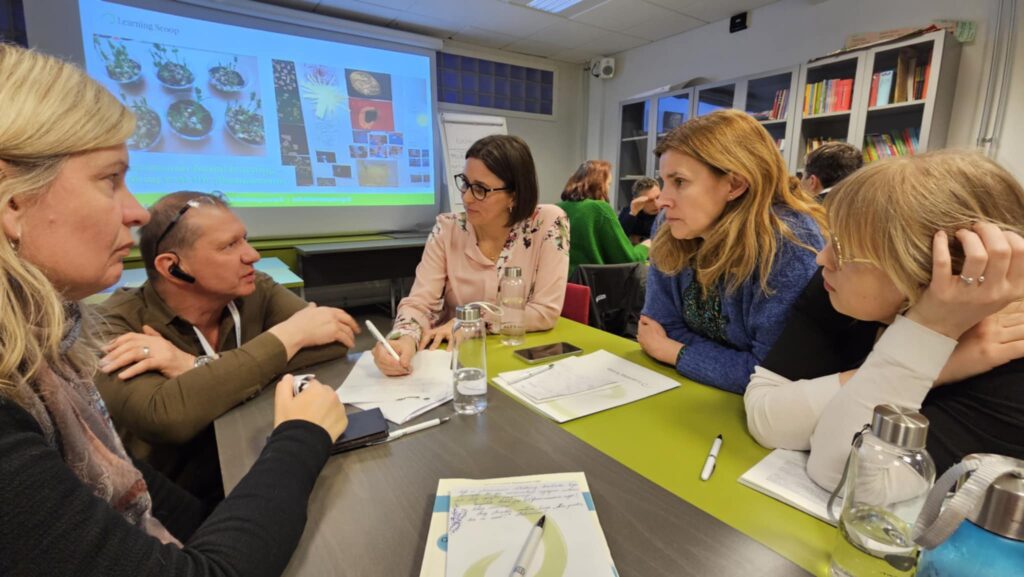
On the third day, our Lithuanian new colleagues collaborated in groups to design phenomenon-based learning projects and shared their ideas with one another. Following this, we visited Lempäälä High School to explore how they implement multidisciplinary and phenomenon-based learning. The principal demonstrated how they teach topics such as environmental changes and population growth by integrating subjects like geography and history.
We also had the opportunity to meet the ‘Climate Warriors,’ a dedicated group of 100 students at the school taking action against climate change. They engage in climate advocacy by educating their peers and even teachers through events and social media. Impressively, they have also participated in meetings with influential figures, including Finland’s Minister of Climate and the Environment.
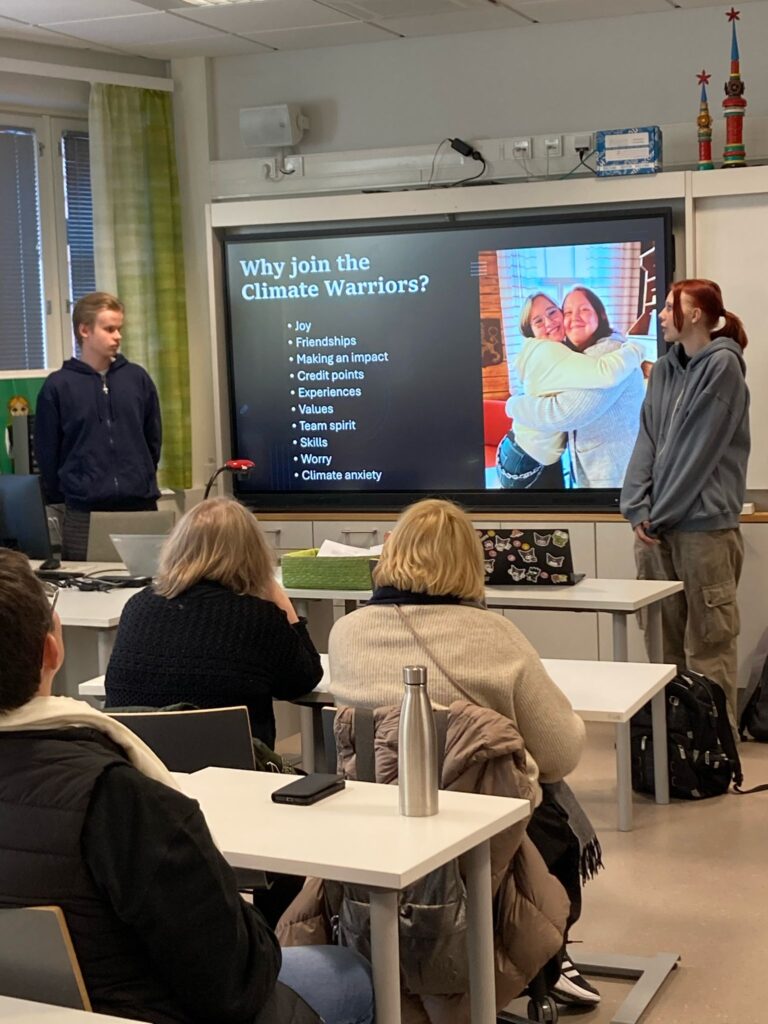
Home takeaways and feedback
This journey sparked new ideas about phenomenon-based learning.
For many of the visitors the study tour was an eye opener and they also learned a lot from their colleagues they are working with and made some new friends.
- Very impressed with everything I have seen. My understanding of phenomenon-based teaching has changed radically. I have received practical examples of how to teach in accordance with PHB in the future.
- Thought-provoking things: outdoor education, connecting the subject to real contexts and knowledge and skills needed in life
- I loved the equality and inclusion instead of separation – all kinds of learners are in the same class and support is available, the schools are also of the same quality
- All the good things that have been told about Finland can be seen and experienced here. Before coming to Finland, I wondered why, according to research, Finns are so happy. The answer is: Finns focus on simple things, simple life.
- The Finnish Nature Experience was rewarding, and the relationship with nature is a special thing for Finnish people
- Our group of teachers was enthusiastic, willing to learn and develop. I hope that our own students would be as enthusiastic to learn as our group.
- I understood how emotions and the classroom atmosphere are important for learning, a lot of attention is paid to these things in Finland.
- Immigrant students are valued and supported a lot to make them integrate to the school life, society and make friends.
- Teachers have great autonomy and are trusted, but at the same time teachers are responsible and do their best for the students.
- It was impressive to notice how calm, serene and polite Finnish students were.
One crucial takeaway was to understand that it is important that you enjoy what you do. This trip to Finland made it possible to get to know their colleagues better and made it realized that they are such a wonderful bunch of people!
During the farewell lunch we heard a beautiful metaphor: just as the ice age has transported stones from Scandinavia to other places, now the teachings of Finnish education are being transferred as stones to Lithuania. We would like to thank each and every one of you and hope you will take the skills and knowledge learned on this trip back to your own school and teaching. We hope you got new perspectives what phenomenon-based learning and multi-disciplinary education mean in practice! A special thank you goes to our partner in Lithuania, Julija and Goda from Kūrybingumo mokykla – it was so rewarding to collaborate with experts like you!
